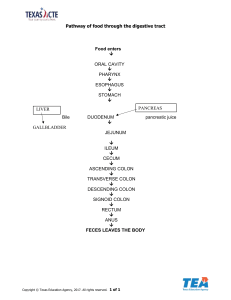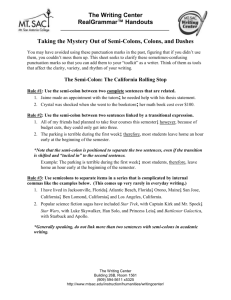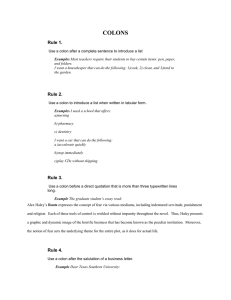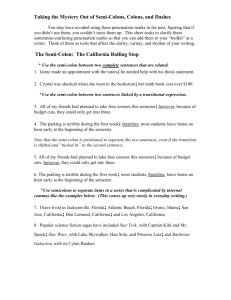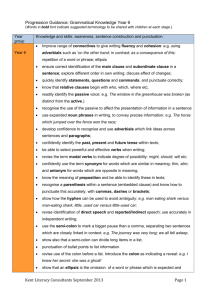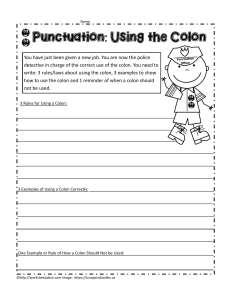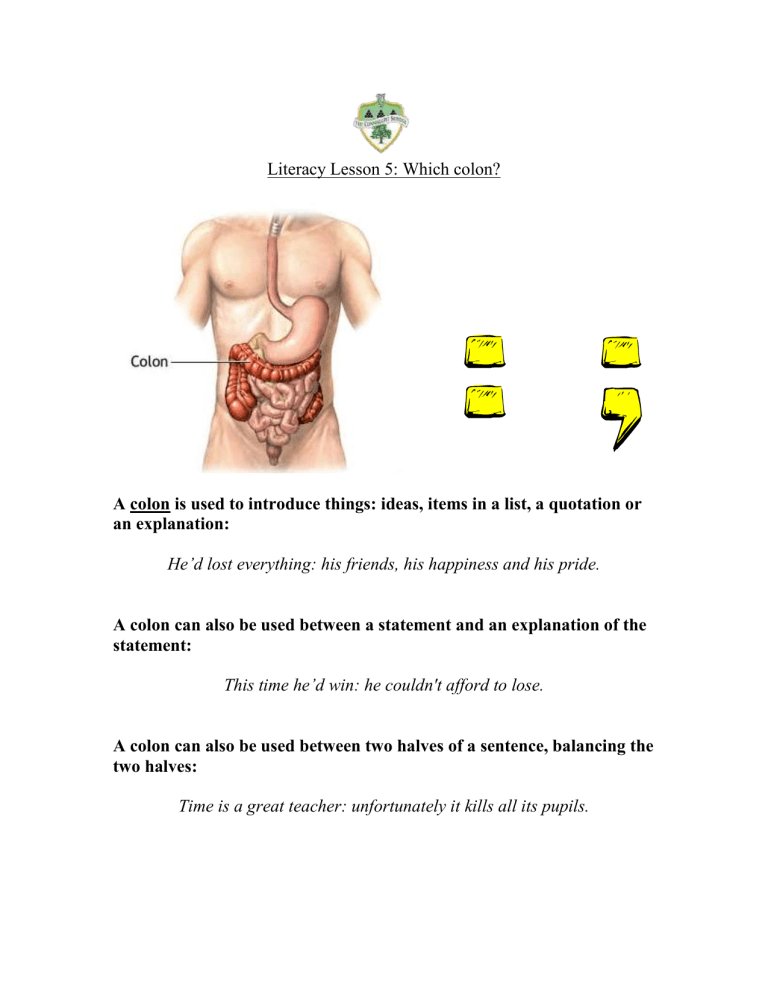
Literacy Lesson 5: Which colon? A colon is used to introduce things: ideas, items in a list, a quotation or an explanation: He’d lost everything: his friends, his happiness and his pride. A colon can also be used between a statement and an explanation of the statement: This time he’d win: he couldn't afford to lose. A colon can also be used between two halves of a sentence, balancing the two halves: Time is a great teacher: unfortunately it kills all its pupils. Time for a bit of colon surgery: insert the colon! 1. Mr Daly had a clear set of demands a giant super-computer, a brand new Ferrari and sack of gold coins. 2. Mr Scarborough’s intentions were clear no one would be going anywhere. 3. Mr Baker demanded ‘Why are you here?’ 4. Sir Alex Ferguson announced his best squad Rooney, Berbatov, Jukes, Baker, Scarborough and Daly. 5. Miss Jukes’ words were powerful the message unforgettable. Semi-colons A semi-colon can be used to separate main clauses in a compound sentence. It often replaces and or but. The semi-colon is useful as it can: • • • help to maintain the theme of a sentence avoid abrupt, short sentences avoid too much use of and or but. Semi-colons can also be used to punctuate lists of long items (instead of commas). Now for a bit of semi-colon surgery! Where should they go? 1. Plenty of girls had signed up for the team Miss Jukes wanted to be one of them. 2. Mr Daly won the ball in the penalty area he turned quickly, almost losing control he shot and scored. 3. Mrs Flower’s briefcase contained a letter to her MP an empty box of Thornton’s chocolates three poems about her holiday and a study of Macbeth. That’s all Folks!
